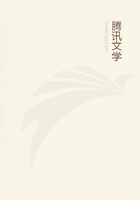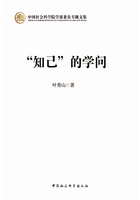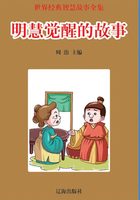Preux, he had not intended to represent himself. "No," replied Rousseau, "St. Preux is not what I have been, but what I wished to be." St. Pierre would most likely have given the same answer, had a similar question been put to him with regard to the Colonel in "Paul and Virginia." This at least, appears the sort of old age he loved to contemplate, and wished to realize.
For six years, he worked at his "Etudes," and with some difficulty found a publisher for them. M. Didot, a celebrated typographer, whose daughter St. Pierre afterwards married, consented to print a manuscript which had been declined by many others. He was well rewarded for the undertaking. The success of the "Etudes de la Nature" surpassed the most sanguine expectation, even of the author. Four years after its publication, St. Pierre gave to the world "Paul and Virginia," which had for some time been lying in his portfolio. He had tried its effect, in manuscript, on persons of different characters and pursuits. They had given it no applause; but all had shed tears at its perusal: and perhaps, few works of a decidedly romantic character have ever been so generally read, or so much approved. Among the great names whose admiration of it is on record, may be mentioned Napoleon and Humboldt.
In 1789, he published "Les Veoeux d'un Solitaire," and "La Suite des Voeux." By the /Moniteur/ of the day, these works were compared to the celebrated pamphlet of Sieyes,--"Qu'est-ce que le tiers etat?" which then absorbed all the public favour. In 1791, "La Chaumiere Indienne" was published: and in the following year, about thirteen days before the celebrated 10th of August, Louis XVI. appointed St. Pierre superintendant of the "Jardin des Plantes." Soon afterwards, the King, on seeing him, complimented him on his writings and told him he was happy to have found a worthy successor to Buffon.
Although deficient in the exact knowledge of the sciences, and knowing little of the world, St. Pierre was, by his simplicity, and the retirement in which he lived, well suited, at that epoch, to the situation. About this time, and when in his fifty-seventh year, he married Mlle. Didot.
In 1795, he became a member of the French Academy, and, as was just, after his acceptance of this honour, he wrote no more against literary societies. On the suppression of his place, he retired to Essonne. It is delightful to follow him there, and to contemplate his quiet existence. His days flowed on peaceably, occupied in the publication of "Les Harmonies de la Nature," the republication of his earlier works, and the composition of some lesser pieces. He himself affectingly regrets an interruption to these occupations. On being appointed Instructor to the Normal School, he says, "I am obliged to hang my harp on the willows of my river, and to accept an employment useful to my family and my country. I am afflicted at having to suspend an occupation which has given me so much happiness."
He enjoyed in his old age, a degree of opulence, which, as much as glory, had perhaps been the object of his ambition. In any case, it is gratifying to reflect, that after a life so full of chance and change, he was, in his latter years, surrounded by much that should accompany old age. His day of storms and tempests was closed by an evening of repose and beauty.
Amid many other blessings, the elasticity of his mind was preserved to the last. He died at Eragny sur l'Oise, on the 21st of January, 1814.
The stirring events which then occupied France, or rather the whole world, caused his death to be little noticed at the time. The Academy did not, however, neglect to give him the honour due to its members.
Mons. Parseval Grand Maison pronounced a deserved eulogium on his talents, and Mons. Aignan, also, the customary tribute, taking his seat as his successor.
Having himself contracted the habit of confiding his griefs and sorrows to the public, the sanctuary of his private life was open alike to the discussion of friends and enemies. The biographer, who wishes to be exact, and yet set down nought in malice, is forced to the contemplation of his errors. The secret of many of these, as well as of his miseries, seems revealed by himself in this sentence: "I experience more pain from a single thorn, than pleasure from a thousand roses." And elsewhere, "The best society seems to me bad, if I find in it one troublesome, wicked, slanderous, envious, or perfidious person." Now, taking into consideration that St. Pierre sometimes imagined persons who were really good, to be deserving of these strong and very contumacious epithets, it would have been difficult indeed to find a society in which he could have been happy.
He was, therefore, wise, in seeking retirement, and indulging in solitude. His mistakes,--for they were mistakes,--arose from a too quick perception of evil, united to an exquisite and diffuse sensibility. When he felt wounded by a thorn, he forgot the beauty and perfume of the rose to which it belonged, and from which perhaps it could not be separated. And he was exposed (as often happens) to the very description of trials that were least in harmony with his defects. Few dispositions could have run a career like his, and have remained unscathed. But one less tender than his own would have been less soured by it. For many years, he bore about with him the consciousness of unacknowledged talent. The world cannot be blamed for not appreciating that which had never been revealed. But we know not what the jostling and elbowing of that world, in the meantime, may have been to him--how often he may have felt himself unworthily treated--or how far that treatment may have preyed upon and corroded his heart. Who shall say that with this consciousness there did not mingle a quick and instinctive perception of the hidden motives of action,--that he did not sometimes detect, where others might have been blind, the under-shuffling of the hands, in the by-play of the world?














